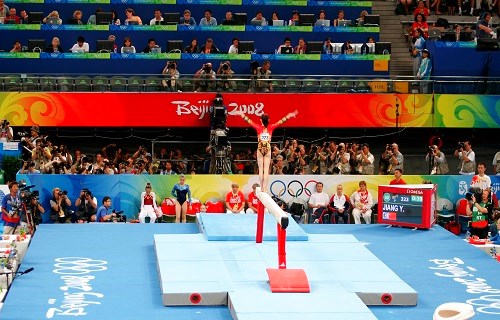Decades of systematic doping in Chinese sport, whistleblower claims
The late 20th century marked a period in which China ascended as a global sports superpower. The ascend however, was also marked by widespread use of performance enhancing drugs, says former Chinese physician, Xue Yinxian.
According to Yinxian, Chinese athletes on national teams made extensive use of doping substances in the 1980’s and 90’s. Starting in the 1970’s, Yinxian was one of the physicians looking after several national teams including the successful gymnasts, writes German ARD Sportschau.
However, the system of doping extended far beyond the national teams. Allegedly, the use of performance enhancing drugs was common – even within regional teams.
“It must have been more than 10,000 people. They believed only in doping. Taking doping substances means defending your country, they said. If you were against doping, you were a danger to the country. And anyone who endangered the country is now in prison,” Yinxian told ARD journalists.
Having left her home town of Beijing, the now 79-year old doctor has requested political asylum in Germany following years of intimidation and harassment by Chinese government officials.
Yinxian says that her stance against doping cost her the job as chief physician to the Chinese national teams. When she refused to treat a top athlete with doping substances ahead of the 1988 Olympic Games in Seoul, Yinxian was immediately prohibited from treating other athletes.
“I wanted the national gymnastics team to be a doping-free zone. I refused to inject a well-known athlete with doping substances. After that, I was no longer allowed to lead my team. In 1988, I still accompanied the national gymnastics team to the Olympic Games in Seoul. After the gymnastics had completed, I was immediately isolated. I wasn’t allowed to treat any more athletes,” said Yinxian, as reported by ARD.
For athletes, taking a stance against doping also meant that there would be consequences. As such, if the athletes refused doping, they were thrown off the team, according to Yinxian.
Medals and politics
For an autocratic regime such as China, medals – and especially Olympic medals, are important because they provide legitimacy to its own citizens and project national strength in the international community, explains Kristin Shi-Kupfer, Director of the Research Area on Politics, Society, and Media at the Marcator institute for China Studies in Berlin, in an interview with ARD.
“Sports, and particularly success in sports, for example the actual number of gold medals, is seen as a status symbol, as an international prestige object, and also a sign of legitimacy for this authoritarian system towards its own citizens, but also on the international stage,” Shi-Kupfer says.
Xue Yinxian’s son told of repeated attempts at intimidation and harassment by the Chinese government directed at his family e.g. police cars stationed outside their home for longer periods at a time, ARD reports.
Having arrived in Europe, Xue Yinxian now calls for all medals won by Chinese athletes in the 1980’s and 1990’s to be withdrawn for the reason that the medals were – in her own words; “showered in doping. Gold, silver and bronze.”






